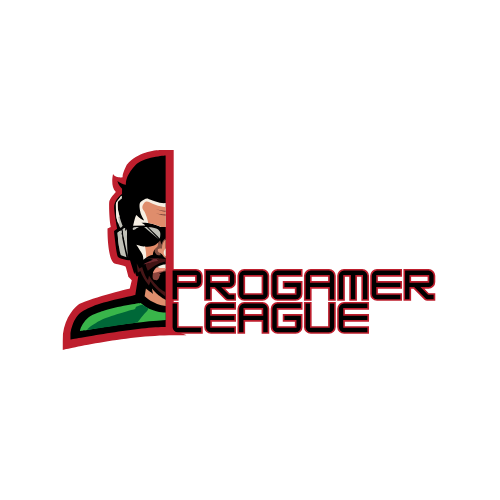C++ game development isn’t just for the coding elite; it’s the secret sauce behind some of the most popular games today. Imagine crafting immersive worlds and dynamic characters, all while wielding a language that’s as powerful as a dragon’s breath. With C++, developers can create high-performance games that keep players on the edge of their seats, and let’s be honest, who doesn’t want to slay a few digital dragons?
C++ Game Development
C++ serves as a foundational language for game development due to its performance capabilities. High-performance graphics, real-time simulation, and efficient memory management make it crucial for developing complex games. Many major game engines, such as Unreal Engine and Unity, utilize C++ either as their primary language or for critical components.
This programming language supports object-oriented programming, allowing developers to create reusable code and modular systems. Heavily used in AAA titles, C++ facilitates the creation of rich, immersive environments. Optimizing game engines ensures smooth gameplay, enhancing user experience and player engagement.
Numerous libraries and frameworks, including SDL and SFML, extend functionality for developers. Developers favor these tools to streamline graphics rendering and audio processing. Networking capabilities in C++ also enable multiplayer game development, increasing the appeal of the final product.
Codebases in C++ often run faster than those in interpreted languages. The efficiency of C++ leads to minimized load times and reduced system resource consumption. Additionally, C++ leverages low-level programming for direct hardware manipulation, permitting detailed control over game performance.
Proficiency in C++ can significantly increase job opportunities in the gaming industry. Employers consistently seek developers capable of working with this language. Creating a solid portfolio showcasing C++ projects can attract attention from top gaming companies.
Through its power, flexibility, and extensive community support, C++ remains a top choice for aspiring and seasoned game developers alike. Game development with C++ unlocks the potential for groundbreaking titles and innovative gameplay experiences.
Benefits Of C++ In Game Development
C++ offers numerous advantages in game development, making it a favored choice among developers.
Performance Optimization
Performance optimization stands out as a primary benefit of using C++. The language provides developers the ability to write fine-tuned code, enhancing the game’s speed and responsiveness. Real-time simulations run more efficiently when coded in C++. Many graphics-intensive applications rely on C++ for superior frame rates, ensuring smooth gameplay. High-performance graphics rendering results from C++’s ability to directly manage hardware resources. Developers can also leverage advanced memory management techniques to minimize lag, creating immersive gaming experiences.
Cross-Platform Support
Cross-platform support is another important feature of C++. Many game engines, including Unreal Engine, utilize C++ to allow the development of games for multiple platforms. Developers can write code once and compile it for various operating systems, including Windows, macOS, and Linux. Flexibility in target device usage makes C++ practical for both console and mobile gaming. This cross-compatibility encourages a broader audience, increasing a game’s accessibility and potential reach. As a result, using C++ often leads to increased player engagement across diverse platforms.
Key Components Of C++ Game Development
C++ game development hinges on several fundamental components that enhance functionality and performance. These components shape the game’s architecture and gameplay experience.
Game Engines
Game engines play a vital role in C++ game development. Unreal Engine stands out as a popular choice, offering powerful tools for rendering graphics and simulating physics. Developers appreciate the range of features provided by engines, which include asset management and scripting capabilities. Cross-platform support in these engines allows for broader audience reach, accommodating Windows, macOS, and consoles. Additionally, real-time development tools enable quick iterations, accelerating the game creation process.
Libraries And Frameworks
Libraries and frameworks extend the capabilities of C++ in game development. SDL simplifies graphics rendering and audio management, providing essential tools for building games. SFML also enhances multimedia capabilities, offering easier integration for graphics and sound. Networking libraries, such as ENet and RakNet, optimize online multiplayer experiences by reducing latency. These frameworks facilitate rapid development cycles and streamline project workflows, allowing developers to focus on game design without reinventing the wheel.
Best Practices For C++ Game Development
Effective C++ game development relies heavily on adhering to best practices that enhance performance, maintainability, and scalability.
Code Organization
Organized code promotes readability and collaboration among developers. Implementing modules and namespaces aids in logical separation of functionalities. Grouping related classes simplifies navigation, while consistent naming conventions improve clarity across the codebase. Developers benefit from employing design patterns like MVC or Singleton, which streamline the development process. Thorough documentation serves as a blueprint for both current and future team members. Using version control systems allows tracking of changes and collaboration within teams, ensuring smooth integration during development cycles.
Memory Management
Efficient memory management is crucial in C++ game development due to the language’s manual memory allocation. Utilizing smart pointers, like shared_ptr and unique_ptr, automatically manages memory and prevents leaks. Developers should regularly profile memory usage to identify bottlenecks and optimize resource allocation. Using custom allocators can enhance performance by reducing fragmentation. Furthermore, understanding the scope and lifespan of variables aids in minimizing unnecessary memory consumption. Systematic deallocation of resources upon use helps maintain optimal performance during complex game scenarios.
C++ remains a powerhouse in game development offering unmatched performance and flexibility. Its ability to create immersive experiences and manage hardware resources directly gives developers a significant edge. With major engines like Unreal and libraries such as SDL and SFML, C++ simplifies complex tasks while maintaining high performance.
The language’s cross-platform capabilities ensure that games reach a wider audience, enhancing player engagement. As the gaming industry continues to evolve, mastering C++ will open doors to exciting opportunities. By following best practices in code organization and memory management, developers can create scalable and maintainable projects that stand out in a competitive market. Embracing C++ is a step towards crafting the next generation of groundbreaking games.


